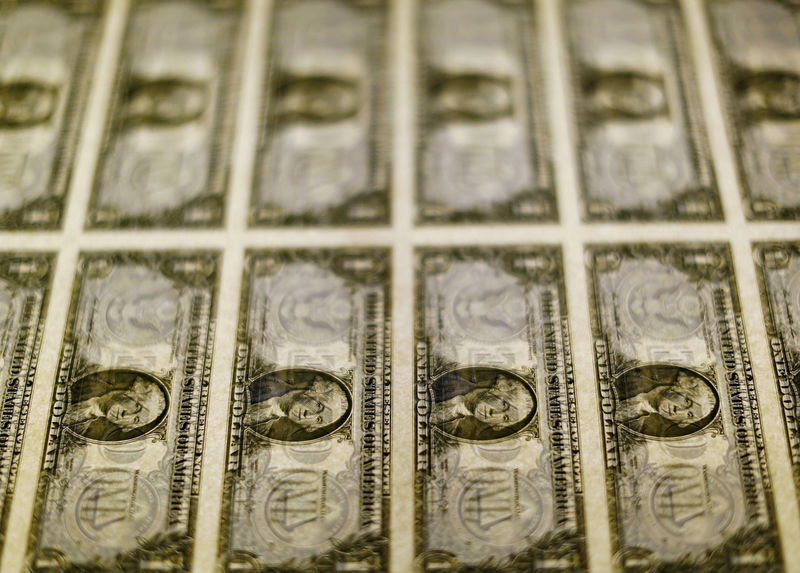Investing.com - The dollar trimmed losses but remained at a 32-month low against other majors on Friday, as concerns over the potential impact of Hurricane Irma on the Florida coast and tensions with North Korea weighed heavily on the greenback.
EUR/USD was up 0.11% at 1.2034, off more than two-year highs of 1.2092 hit earlier in the day.
The single currency remained broadly supported after the European Central Bank left interest rates unchanged as expected on Thursday and signaled that information on the tapering of the central bank's asset-purchase program would be delivered in October.
Meanwhile, sentiment on the greenback remained vulnerable amid concerns over the impact of Hurricane Irma. The category 5 storm is projected to hit Florida over the weekend.
Market participants seemed to shrug off remarks by New York Federal Reserve President William Dudley on Thursday calling on the U.S. central bank to continue gradually raising interest rates, as low inflation should rebound.
The safe-haven yen and Swiss franc remained stronger, with USD/JPY down 0.48% at a 10-month low of 107.92 and with USD/CHF shedding 0.27% to 0.9483.
Investors were also cautious amid speculation North Korea could launch an intercontinental ballistic missile on Saturday, which will mark the anniversary of the nation's foundation.
U.S. President Donald Trump said on Thursday that he would prefer not to use military action against Pyongyang to counter its nuclear and missile threat but that if he did it would be a "very sad day" for the North-Korean leadership.
Elsewhere, GBP/USD was up 0.56% at a five-week high of 1.3184 after data earlier showed that UK manufacturing production rose more than forecast in July, while industrial production increased in line with expectations.
A separate report showed that the UK trade deficit narrowed to £11.58 billion in July from a revised £11.53 billion the previous month.
The Australian and New Zealand dollars were still on the upside, with AUD/USD adding 0.16% to 0.8061 and with NZD/USD gaining 0.36% to 0.7259.
Meanwhile, USD/CAD erased losses and gained 0.35% to trade at 1.2157, bouncing off a 28-month low of 1.2062 hit earlier in the session.
The loonie remained supported however, as Statistics Canada reported on Friday that the unemployment rate fell unexpectedly to 6.2% in August from 6.3% the previous month.
The report also showed that 22,200 jobs were created last month, beating market expectations.
The strong data added to optimism over the strength of the Canadian economy, underlined by the Bank of Canada's surprise decision this week to raise the benchmark interest rate by 25 basis points to 1.00%.
The U.S. dollar index, which measures the greenback’s strength against a trade-weighted basket of six major currencies, was down 0.08% at 91.41 by 10:50 a.m. ET (14:50 GMT), off session lows of 90.99 but still at its weakest level since January 2015.
